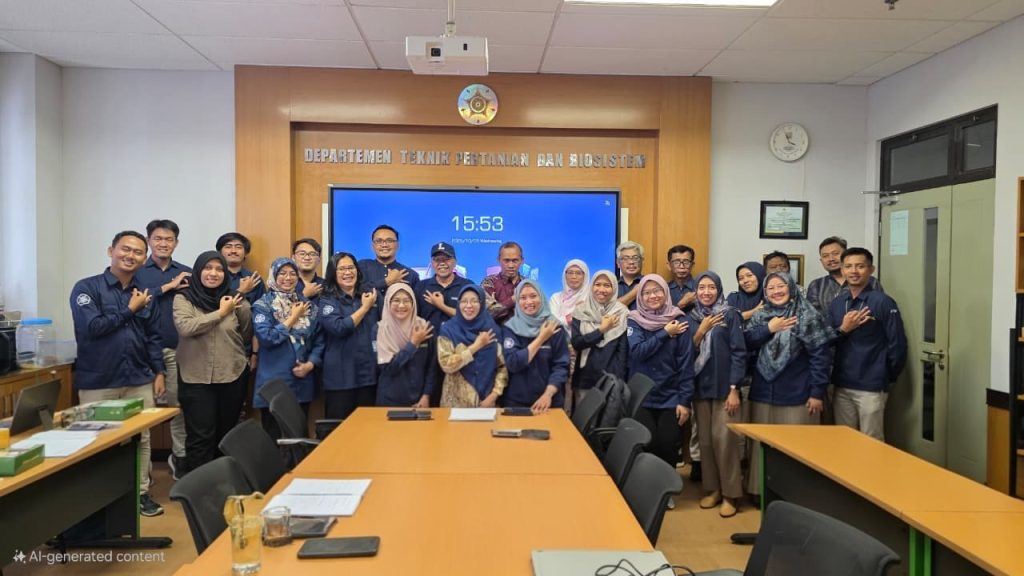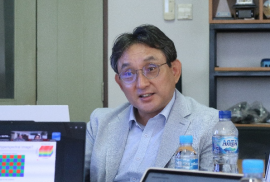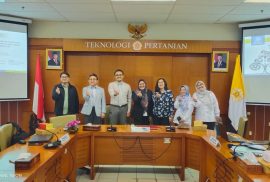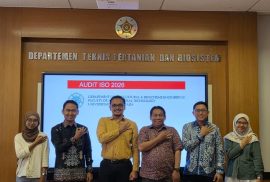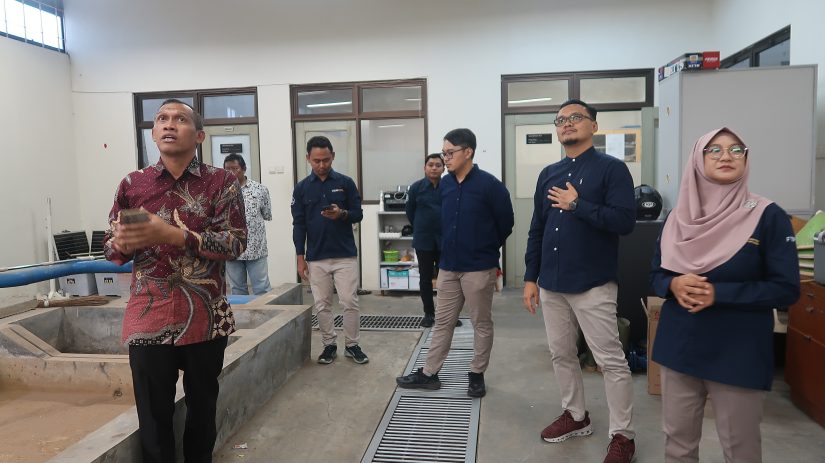
Yogyakarta, October 1, 2025 – Occupational Health and Safety (OHS) is a fundamental principle that must be upheld, including in academic and research activities within the university environment. This aligns with the mandate of Law No. 1 of 1970 on Occupational Safety. As a concrete manifestation of this commitment, the Department of Agricultural and Biosystems Engineering (DTPB), Faculty of Agricultural Technology, Universitas Gadjah Mada (FTP UGM), organized Occupational Health and Safety (OHS) Management Training for Laboratory Management on Wednesday, October 1, 2025.
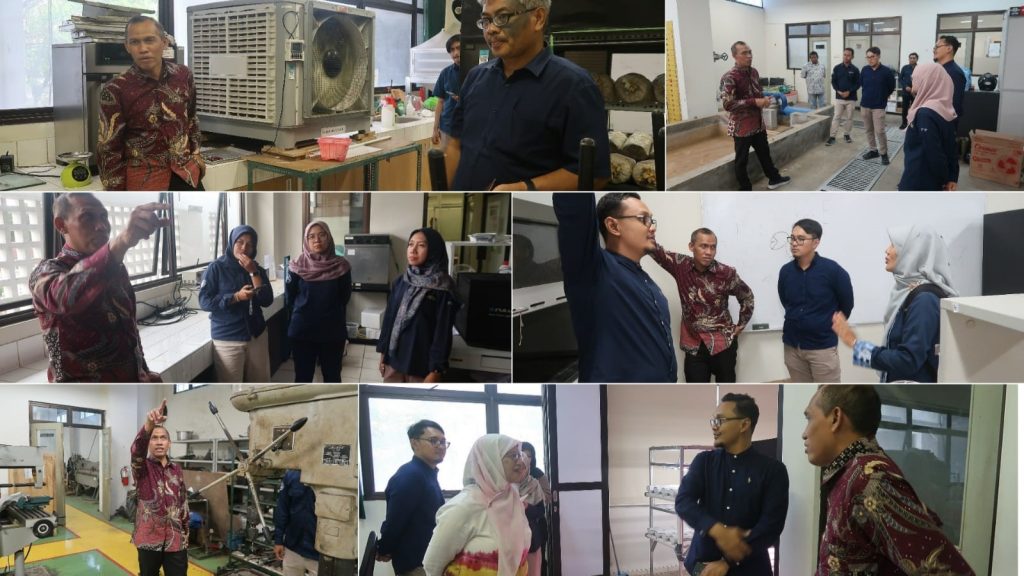
The training featured Muhamad Dawaman, S.E., M.KKK., an experienced practitioner in the field of Health, Safety, and Environment (HSE) as well as a certified trainer. Before the training began, he was invited to tour and inspect several research laboratories at DTPB, including the Biophysics Laboratory, Environmental and Agricultural Building Engineering Laboratory, Agricultural Energy and Machinery Laboratory, Power Laboratory, Plant Factory, Soil Laboratory, Irrigation Laboratory, and Food and Postharvest Engineering Laboratory.
The visit aimed to observe the actual condition of the laboratories and provide direct recommendations to laboratory heads and technicians regarding improvements in OHS implementation within each unit.
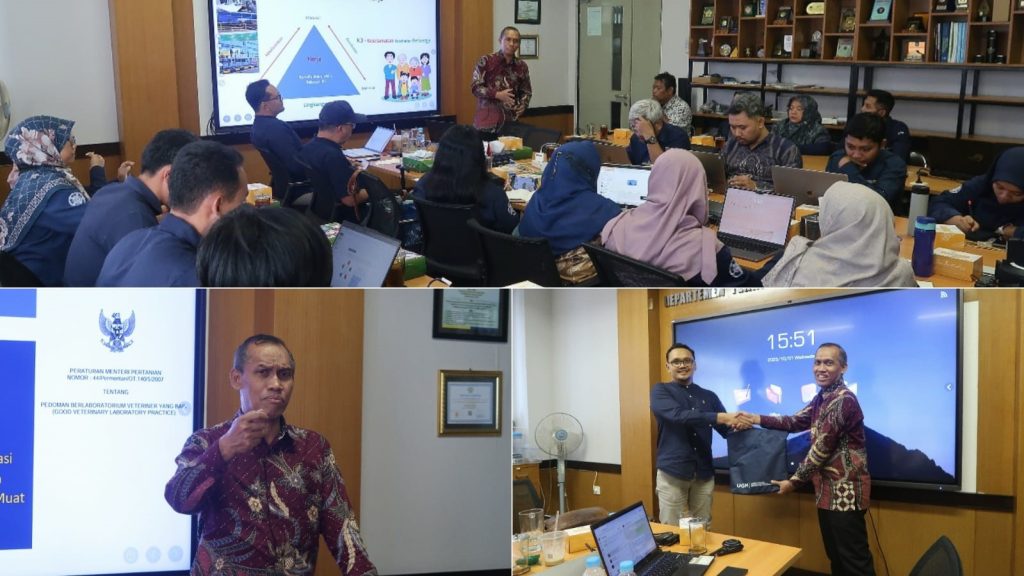
Following the site visit, the training continued in Meeting Room 1 of DTPB, attended by department administrators, laboratory heads, and technicians. In his presentation, Mr. Dawaman emphasized several key points:
-
OHS is not an option but an obligation that must be implemented by all organizational members.
-
OHS management involves identifying, mitigating, and controlling risks that could potentially cause harm in the laboratory.
-
A strong OHS culture can only be achieved when all academic members actively and consistently participate in its implementation.
This activity also supports the achievement of several Sustainable Development Goals (SDGs), including:
-
SDG 3 (Good Health and Well-Being): Creating a healthy and safe working environment for lecturers, staff, students, and researchers.
-
SDG 4 (Quality Education): Supporting high-quality education and research through safe laboratory management.
-
SDG 8 (Decent Work and Economic Growth): Promoting decent work practices by protecting laboratory personnel.
-
SDG 12 (Responsible Consumption and Production): Encouraging efficient and safe laboratory management while minimizing potential hazardous waste.
Through this training, DTPB FTP UGM aims to strengthen the culture of occupational safety and health as an essential foundation supporting research, community service, and learning activities. It is also hoped that every laboratory will become a productive, innovative, safe, and sustainable workspace, reflecting the department’s commitment to maintaining excellence and international competitiveness in higher education.
